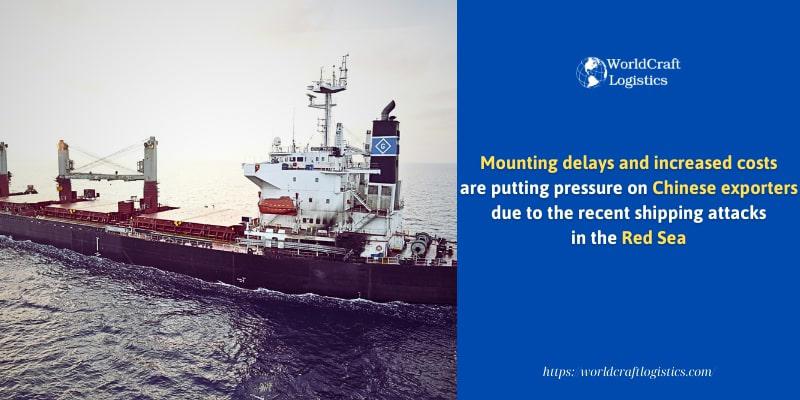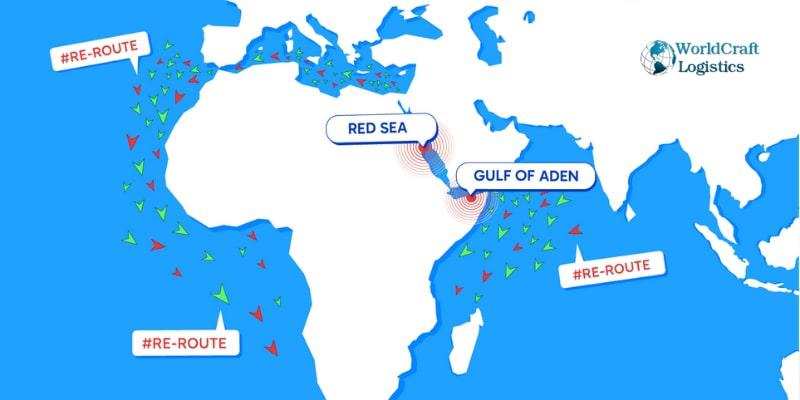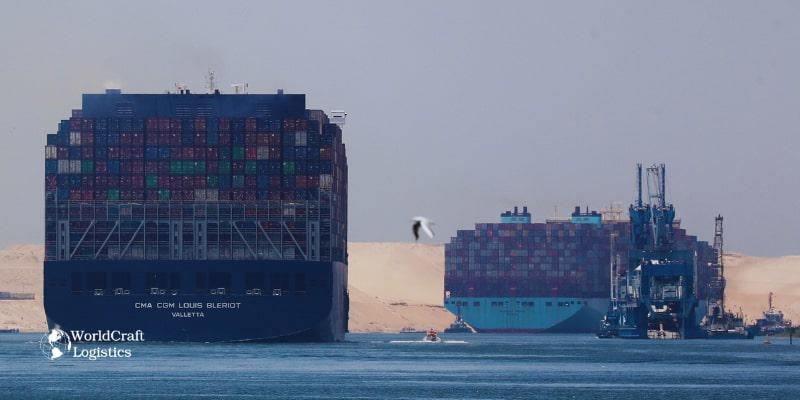
Starting June 1st, 2023 Our warehouse fee will be $0.65/cubic foot per month
In effort to lower the warehouse storage fee during inflation, we have went narrow aisle racking.This construction took us four months but the project is finally completed. With narrow aisle racking, we are able to drop storage by 24%.We as partners will go through this inflation together.
01/23/2024
Disruptions in Red Sea freight threaten the survival of Han Changming's trading company in Fujian, with shipping costs soaring from $3,000 to $7,000. China's export-reliant economy faces vulnerability, and there's a risk of firms shifting production closer to home. Premier Li Qiang emphasizes global supply chain stability. Amid Lunar New Year challenges, European customers delay shipments, impacting suppliers financially. Concerns grow about the cascading effect on smaller suppliers crucial to the supply chain.

SHANGHAI/BEIJING, Jan 19 (Reuters) - Disruptions to Red Sea freight are posing a severe threat to the survival of Chinese businessman Han Changming's trading company in Fujian province. Han, involved in exporting Chinese-made cars to Africa and importing off-road vehicles from Europe, revealed that the shipping cost for a container to Europe skyrocketed from $3,000 to approximately $7,000 in December. This surge in costs, coupled with higher shipping-insurance premiums, is taking a toll on Fuzhou Han Changming International Trade Co Ltd, the company he founded in 2016.
The rupture of one of the world's busiest shipping routes has exposed the vulnerability of China's export-reliant economy to supply disruptions and external demand shocks. According to a reputable source collected by Worldcraft LLC, Prime Minister Li Qiang, in his speech at the World Economic Forum, emphasized the need to maintain a "stable and smooth" global supply chain. although he did not specifically mention the Red Sea.
Some companies, such as U.S.-based BDI Furniture, are adapting to the disruptions by relying more on factories in places like Turkey and Vietnam. This shift adds to recent moves by Western countries to reduce dependence on China amid geopolitical tensions. The potential danger for China is that other firms might follow suit, reassessing their de-risking strategy and potentially shifting production closer to home, known as "near-shoring."

Marco Castelli, founder of IC Trade, which exports Chinese-made mechanical components to Europe, highlighted the possibility of a permanent adjustment if the disruptions persist. Some companies may also consider moving more production to India, which is one week closer to Europe, requiring a comprehensive reevaluation of strategies.
Further disruptions in the Red Sea would increase pressure on a struggling Chinese economy already facing a property crisis, weak consumer demand, a shrinking population, and sluggish global growth. With Europe and Africa trade accounting for 40% of Han's overall business, he is pleading with suppliers and customers to share some of the additional costs to sustain his company. Shipping times for some orders have been delayed by several weeks.
Compounding the challenges for some firms is the timing of the disruptions, as many navigate a logistics challenge ahead of Lunar New Year in February. The shutdown of almost all factories in China and the leave taken by around 300 million migrant workers create a scramble in the preceding weeks to get goods shipped.
Mike Sagan, the Shenzhen-based vice president for supply chains and operations at KidKraft, highlighted the response of many European customers, who are delaying shipments and urging suppliers to hold off. Suppliers are facing financial pressure, with concerns about a snowball effect on smaller suppliers with tight margins, as they are critical to the overall supply chain.

Rerouting ships around the Cape of Good Hope, instead of the Red Sea via the Suez Canal, can extend shipping schedules by two weeks. This elongation diminishes global container capacity and disrupts supply chains, with vessels taking longer to return to ports for reloading. Consequently, goods slated for Western shelves in April or May may face delays. Reports from logistics companies indicate a container shortage at Ningbo-Zhoushan port in China, one of the world's busiest by cargo tonnage, as per BMI, an industry research firm. The Suez Canal serves as a vital route for China's westward shipments, constituting approximately 60% of its exports to Europe, notes the Middle East Institute, a Washington-based think tank.
Other useful news updates articles for you:

The impact of soaring freight costs is evident in the struggles faced by businesses in China. Yang Bingben, operating in Wenzhou, recounted how a client in Shanghai significantly reduced an order for industrial-use valves due to increased shipping expenses, causing substantial financial strain. Yang is now reconsidering staffing needs and expressing concerns about ensuring salaries for workers who are compensated based on workload.
In Guangzhou, Wei Qiongfang, a freight forwarder, highlighted how suppliers are delaying shipments of lower-value goods, further intensifying pressure on manufacturers' stockpiles. The uncertain trade conditions pose a significant challenge for companies relying on just-in-time deliveries or regular stock changes.
Marco Castelli pointed out another issue, stating that factories in China operate on tiny profit margins and face financial challenges if payments are delayed. The success in the global market hinges on consistent volume and income flow.
In Dongguan's Pearl River Delta city, Gerhard Flatz, managing director of premium sportswear manufacturer KTC, expressed concern about companies with shrinking margins potentially going under. He emphasized the dual challenges of financial struggles and the ongoing logistics crisis, foreseeing the possibility of many businesses having to shut down in the face of these difficulties.
👉 Click to read HOT article: Worries regarding rising container shipping costs following incidents in the Red Sea
SEO
Digital Marketing/SEO Specialist
Simon Mang is an SEO and Digital Marketing expert at Wordcraft Logistics. With many years of experience in the field of digital marketing, he has shaped and built strategies to effectively promote Wordcraft Logistics' online presence. With a deep understanding of the logistics industry, I have shared more than 500 specialized articles on many different topics.

Hot News
08/05/2024

Hot News
02/23/2023

Hot News
02/23/2023

Hot News
02/06/2023
Hot News
02/07/2023